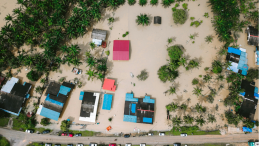Within the framework of the UNU-WIDER 2019-23 work programme, this project supports the Institute’s work on SDG 10: Reduced Inequalities and Transforming Societies to better understand social mobility in developing country contexts and provide insights into how to carry out research and policy formulation which improves levels of upward social mobility and thereby reduce inequalities. By doing so, the project contributes to the Institute’s Theory of Change’s (ToC) three interlinked outputs of creating, strengthening and exchanging knowledge.
Social mobility — defined as the ability to move from a lower to a higher level of education or occupational status, or from a lower to a higher social class or income-group — is the hope of economic development and the mantra of a good society.
Concerns about rising inequality have engendered a renewed interest in social mobility, especially in the developing world, as reflected in recent authoritative reports from the OECD and the World Bank. However, efforts to construct the databases in developing countries and meet the standards required for conventional analyses of social mobility are, still, at a preliminary stage and need to be complemented by innovative conceptual and methodological advances to convincingly study a phenomenon of great contemporary importance.
This project gathers existing knowledge about social mobility in developing countries and develops the concepts and methodologies needed to further research on this topic. It will make major advances in methods for the study of social mobility in developing countries and will synthesize these advances in a foundational book. A collection of additional research papers that advance the frontier of knowledge on social mobility in developing countries will also be published.
One goal of the project is to provide policymakers and academics with policy and research models and frameworks for deepening understanding of social mobility in developing country contexts. A second goal of the project is to alter the discourse on global inequality such that sustainable, long-term reductions in inequality are achieved through a new understanding of the need to advance policy frameworks that increase social mobility. The project aims for two of the ToC immediate outcomes: 1. ‘Changes in conceptual understanding, problem-recognition and discourse, establishing demand for policy analysis’ and 2. ‘Changes in the use of research and policy analysis skills, systems, and an expanded ‘toolbox’ of evidence‐based policy models and data systems for progressive socially inclusive development’.
Key questions to be addressed within the project:
-
How does one assess the extent of social mobility in a given development context when the datasets required by conventional measurement techniques are limited in availability?
-
What do we know about the patterns of social mobility across the developing world? Which countries have done particularly well in social mobility and which countries have lagged behind?
-
How does one reliably identify the drivers and the inhibitors of social mobility in particular developing country contexts?
-
How does one acquire the knowledge required to design interventions that are likely to raise social mobility, either by increasing upward mobility or by lowering downward mobility?




